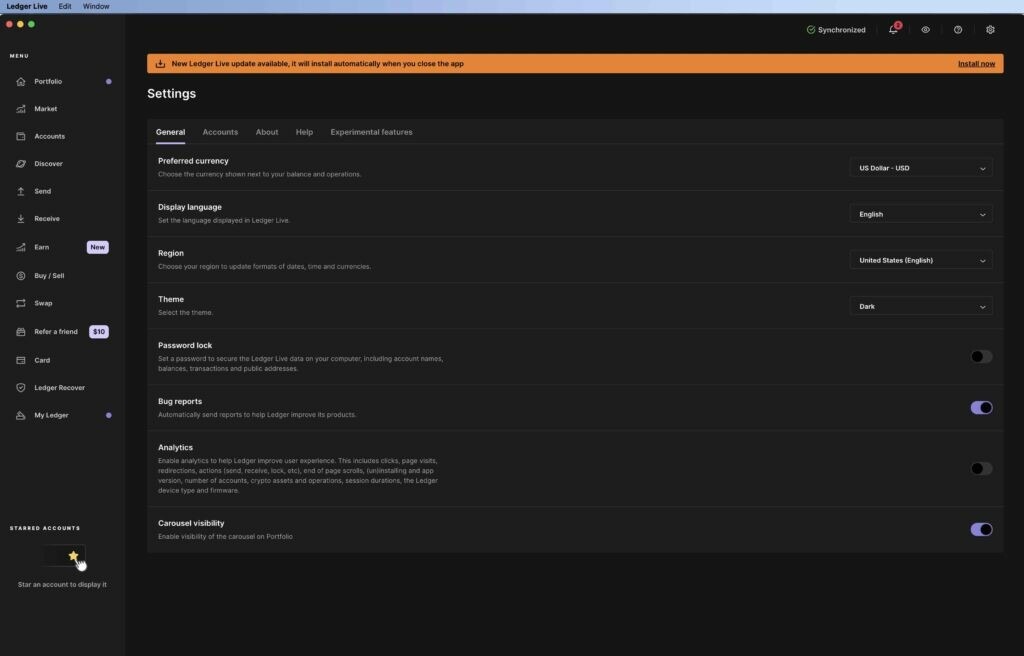- Ledger, a hardware wallet manufacturer, has been found to engage in data harvesting practices.
- Ledger Live, their official software, contains a comprehensive user tracking mechanism, raising privacy concerns.
- Users can prioritize privacy by opting for alternative hardware wallet options or using tracker-free versions of Ledger Live.
In the realm of cryptocurrency, security and privacy are of utmost importance. As digital asset holders, we rely on hardware wallets to safeguard our valuable holdings. However, recent sleuthing has uncovered a concerning data harvesting operation by one of the industry’s largest hardware wallet manufacturers, Ledger. In this article, we shed light on the findings and explore the implications for user privacy. We also present alternative solutions that prioritize security and offer users a peace of mind.
Unveiling the Data Harvesting System
Ledger’s official software, Ledger Live, serves as the primary interface for users to interact with their hardware wallets. Surprisingly, a thorough examination of its code by REKTbuildr revealed the presence of an extensive user tracking mechanism. This discovery raised eyebrows within the cryptocurrency community, as Ledger Live was found to transmit a wide range of user data to an analytics provider known as segment.io.
The Extent of Data Collection
Ledger Live’s data transmission includes various types of user information, such as clicks, page visits, redirects, crypto transactions, page scrolls, numbers of accounts, crypto asset names, session durations, hardware device types, and firmware versions. This comprehensive collection of data has led REKTbuildr to describe the system as a “gigantic user tracking system.”

Privacy Concerns and Potential Risks
While Ledger Live does offer users the option to disable some of these analytics features in its settings, the default configurations raise concerns. The transmitted data, although not including private keys or recovery phrases, contains enough information to potentially expose users to extortion attacks. Malicious actors could exploit this data to identify users with substantial cryptocurrency holdings, along with detailed information about their assets and activities.
Commercial Motives or Internal Use?
A plausible explanation for Ledger’s data harvesting practices, as speculated by REKTbuildr, is the potential resale of anonymized user data to third-party advertisers. Advertisers often seek prepackaged audiences with specific digital engagement histories, which can be valuable for targeted marketing campaigns. Alternatively, the data could be utilized internally by Ledger’s user experience (UX) and user interface (UI) teams to improve their products.
Safeguarding Privacy with Alternatives
In response to these privacy concerns, REKTbuildr has undertaken the initiative to fork Ledger Live software. By removing the tracking codes, they have created a tracker-free version of the software, which has been made available on GitHub. This alternative ensures users can utilize Ledger hardware wallets without compromising their privacy.
Building Trust through Transparency
Regrettably, Ledger’s response to the data harvesting revelations has been minimal. This lack of engagement has further eroded the trust of the digital asset community, who have already been shaken by previous incidents such as the controversial Recover service that potentially exposed private keys. Ledger’s history of compromised email databases has also contributed to a sense of caution.
Embracing Privacy-First Solutions
To protect user privacy and ensure the security of their digital assets, it is crucial to explore alternative hardware wallet options. By choosing tracker-free forked versions of software or even using hardware wallets without installing Ledger Live, users can reclaim control over their privacy and reduce potential risks.
Conclusion
Ledger’s data harvesting practices have brought into focus the critical need for transparency and user privacy in the cryptocurrency industry. As a community, we must advocate for solutions that prioritize security and empower users with full control over their data. By embracing privacy-first alternatives and promoting a culture of transparency, we can ensure the longevity and trustworthiness of the hardware wallet ecosystem.
Disclaimer
The information provided in this article is for informational purposes only and should not be considered financial advice. The article does not offer sufficient information to make investment decisions, nor does it constitute an offer, recommendation, or solicitation to buy or sell any financial instrument. The content is opinion of the author and does not reflect any view or suggestion or any kind of advise from CryptoNewsBytes.com. The author declares he does not hold any of the above mentioned tokens or received any incentive from any company.





